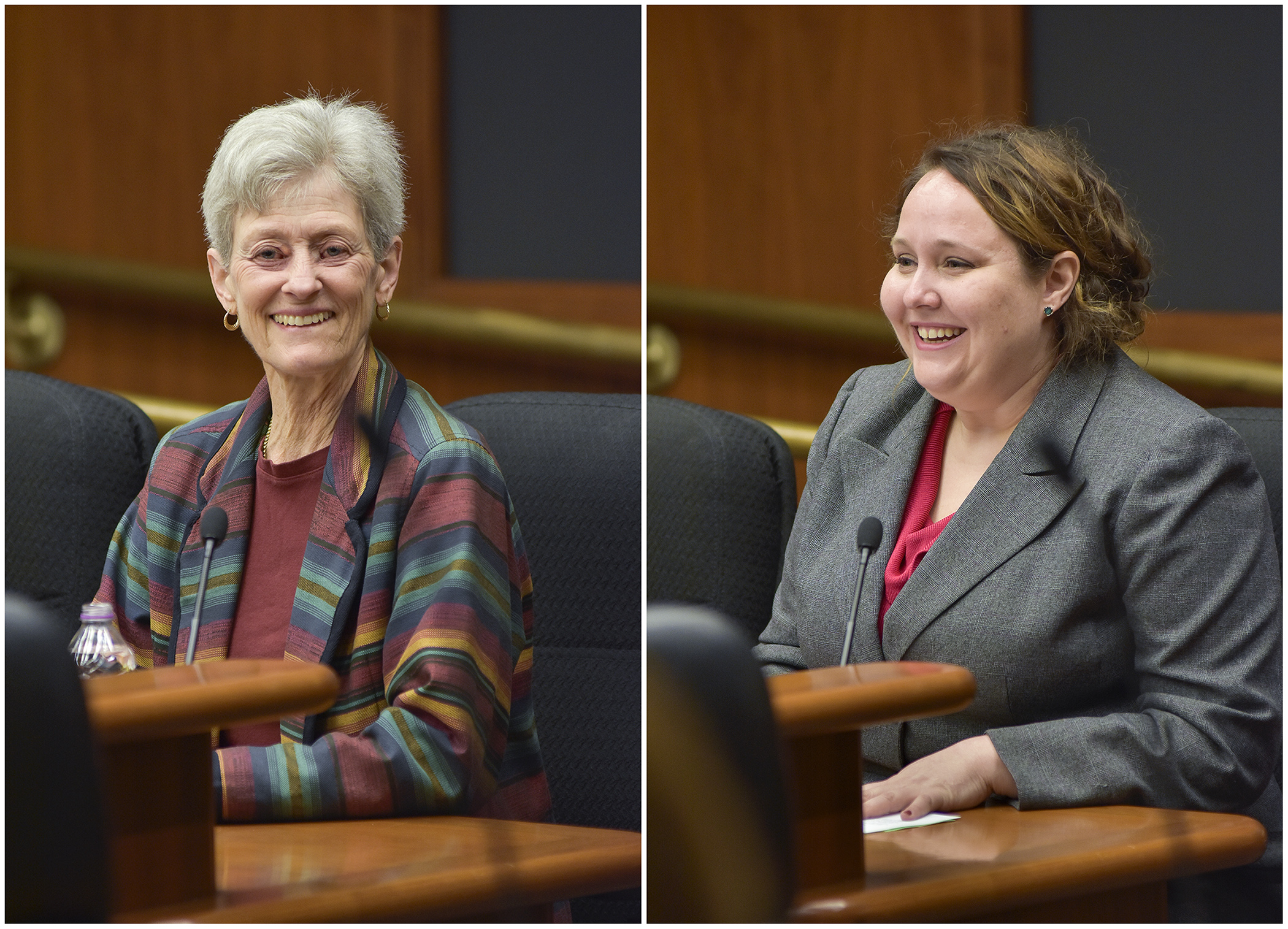Campaign finance board appointees questioned, affirmed by House committee

Two candidates for the six-member board that works to manage the impact of money and influence in Minnesota politics continued their on-the-job interview process Tuesday.
Margaret Leppik and Emma Greenman, who were appointed to the Campaign Finance and Public Disclosure Board by Gov. Mark Dayton in January, faced questions from the House Government Operations and Elections Policy Committee, which approved the appointment of each nominee.
The board is composed of six bipartisan members appointed by the governor for staggered four-year terms. However, these appointments must be confirmed by three-fifths of both the House and Senate.
Established by the Legislature in 1974, the board works to provide transparency to the political process. Its four main programs are:
- campaign finance regulation of candidates for state offices;
- administration of public subsidy programs for candidate campaigns;
- lobbyist registration and oversight; and
- gift ban and conflict of interest reporting for public officials.
There are several provisions in the law to ensure the board is bipartisan. Two members must be former legislators who support different parties; two members must never have held political party office – other than precinct delegate, or been elected to public office which requires a party designation in the three years prior to appointment; and two members must support different political parties.
Finally, no more than three members may support the same political party, and none may currently serve as a lobbyist.
Leppik, who served in the House from 1991-2002, currently holds the seat for a former Republican legislator. She was first to face the committee’s questions.
Rep. Tim Sanders (R-Blaine), the committee chair, asked Leppik to describe the role the board should play in regulating money in the political process.
MORE Learn more about the Campaign Finance and Public Disclosure board
Leppik said that although the campaign finance board is an enforcement body, most of the infractions it deals with are minor and unintentional. However, it can dive deeper into more serious violations and use “the hammer” of fines and civil penalties if needed.
“Laws have to have teeth,” Leppik said. “They have to be enforceable and they have to be enforced to be effective.”
Much of the committee’s time was devoted to questioning Greenman, who would fill the open seat to be held by a DFL supporter.
She was asked repeatedly about past writings and comments she’d made regarding the influence of money in elections and whether those views would influence her work on the board. Sanders asked Greenman to explain a passage she’d written that said “big money could be the death of our democracy.”
Greenman said her personal belief is that big money could harm some candidates’ ability to speak and communicate with voters, which she said is vital in a democracy. But, as a lawyer, Greenman said she also understands her duty as a board member.
“My role is to look at the law that the Legislature has written and apply the facts fairly,” Greenman said.
Rep. Linda Runbeck (R-Circle Pines) asked if it would be difficult for Greenman to take off her “partisan hat” while serving. Greenman said many board members have a background in politics and that she would take her oath to uphold the law seriously.
Both Greenman and Leppik said updating the board’s website to make it more user-friendly and helpful was a priority, and that work to do so was underway. Leppik said more needed to be done to make the public aware of the service it provides, because most people aren’t aware it exists.
“I think that’s unfortunate,” she said. “Because the board really does provide a lot of information to the public.”
Related Articles
Search Session Daily
Advanced Search OptionsPriority Dailies
Ways and Means Committee OKs proposed $512 million supplemental budget on party-line vote
By Mike Cook Meeting more needs or fiscal irresponsibility is one way to sum up the differences among the two parties on a supplemental spending package a year after a $72 billion state budg...
Meeting more needs or fiscal irresponsibility is one way to sum up the differences among the two parties on a supplemental spending package a year after a $72 billion state budg...
Minnesota’s projected budget surplus balloons to $3.7 billion, but fiscal pressure still looms
By Rob Hubbard Just as Minnesota has experienced a warmer winter than usual, so has the state’s budget outlook warmed over the past few months.
On Thursday, Minnesota Management and Budget...
Just as Minnesota has experienced a warmer winter than usual, so has the state’s budget outlook warmed over the past few months.
On Thursday, Minnesota Management and Budget...